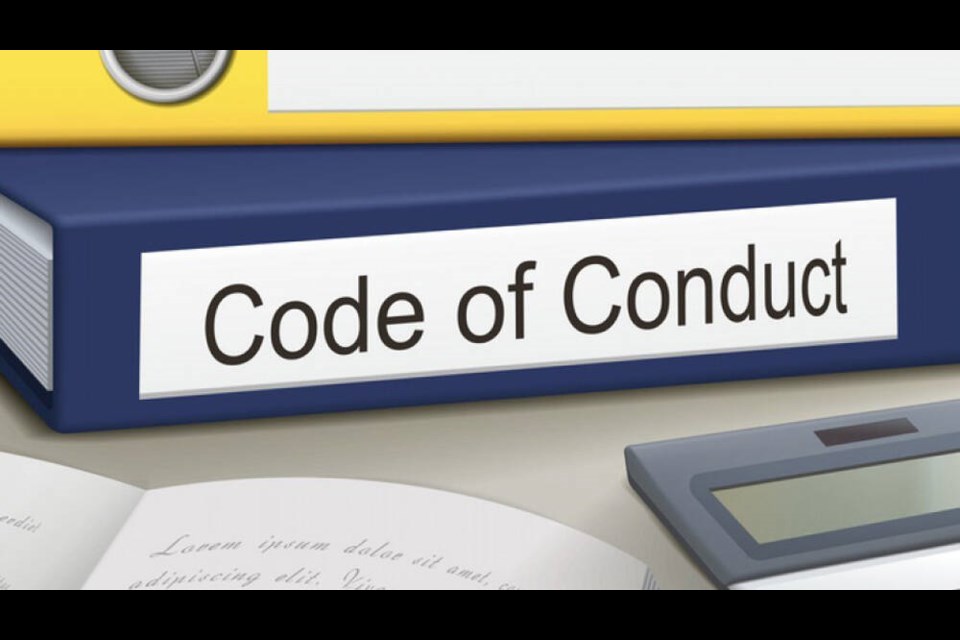Columnists like to live in a world of absolutes – a world of “must” instead of “may,” and “should” instead of “might” – so the proposal to apply a political code of conduct to West Vancouver council sounds at first like a no-brainer.
Of course our elected officials must be accountable.
Of course their behaviour needs to be ethically moored.
Of course a code would build transparency.
So, of course council needs to adopt a code, and if it won’t agree, then what is it hiding?
But not so fast. Even though I’ve long believed in openness and transparency in policy and process in politics, my thinking has shifted about codes. I’ve found them well-meaning but ineffective, illusory bundles of bromides, vaguely constructed so as to be easily evaded. They are more window-dressing than the weapons that take down the bad players.
Before proceeding with any significant initiative – and this is one – should come the question: What problem is it trying to solve that can’t be solved otherwise?
There is a vast legal landscape governing politicians and public servants. There are statutes around corruption. There are precedents to define conflicts of interest. There are boundaries for defamatory public comment. There are agreed-upon workplace standards. There is a hefty oath of office.
Is bringing forward a code of conduct a statement that even these provisions are insufficient – that we need another layer of oversight and guardrails and another bureaucratic apparatus to administer it? If so, what has happened to require this? If the situation so needs to impose codified behaviour, what does it say about us in electing these people in the first place?
There are other critical questions to consider: How healthy are codes that have as a starting point an impugning premise that politicians need to be treated as unethical and inherently untrustworthy? How can we be so sure that the codes are aligned with public needs? How likely is it that a code would be susceptible to varying, subjective interpretations that, in turn, would breed greater distrust?
A code certainly serves those who voted against those who won election – as if to say to politicians that, with this code, you will never shed their granular gaze. If that’s what we really want, I suppose that is a way to have it. But in easing the path to consequence-free accusations of violations, a code can generate an undeserving cloud of increased public distrust.
Politics is different from other regulated professions, in that there are contentious differences in the principles, beliefs, values and ideologies that guide behaviour and decision-making. The role requires its actors to exercise discretion in pragmatically, intuitively, even inconsistently balancing various competing obligations.
The staff-written WestVan proposal has a lot to like in the respectful and reflective good-faith culture it paints of an ideal council. It sets out “behavioral expectations,” an informal resolution process when someone complains they aren’t being met, and a more rigorous resolution process when council might need to impose remedies – the choice would be with the complainant. It illuminates the role of the Chief Administrative Officer (CAO) as a gatekeeper between politicians and public servants so the mayor and council stay in their lanes.
It’s just not clear it’s needed, at least yet.
Within six months of their elections, councils are required by the province to indicate if they’ll adopt a code of conduct – and if not, why not? It didn’t accept the proposal at council, although Coun. Peter Lambur pushed through a motion for the first of three readings. It’ll face a verdict April 24.
Mayor Mark Sager told that meeting the proposal wouldn’t today enjoy public support; of course, unless he possesses supernatural powers of telepathy, he can’t know that. And considering he is the subject of a Law Society citation he tried to suppress in the campaign, any pronouncement for the time being on issues of this ilk is, well, complicated.
Sager also suggests council needs to discuss the proposal among themselves, reflecting his hands-on, fingers-in, deal-cooking, get-er-done bravura, which, very sorry to say, only feeds public suspicion and cynicism.
Code or no code, we need more public political conduct.
Kirk LaPointe is publisher and executive editor of Business in Vancouver as well as vice-president, editorial, Glacier Media Group, the North Shore News’ parent company. He is also a West Vancouverite.
What are your thoughts? Send us a letter via email by clicking here or post a comment below.



